On Saturday, the Presidential Leadership Council convened under the leadership of President Dr. Rashad Muhammad Al-Alimi. The meeting included council members Eidros Al-Zubaidi, Sultan Al-Aradah, Tariq Saleh, Dr. Abdullah Al-Alimi, Othman Majli, and Faraj Al-Bahsani. Member Abdulrahman Al-Mahrami was absent due to valid reasons.
Economic and Humanitarian Challenges Discussed
The council dedicated its session to discussing the current economic, living, and service conditions in the country. Key topics included fluctuations in currency exchange rates, the prices of essential goods, and commercial shipping challenges. The humanitarian impact of these issues has intensified due to Houthi militia attacks on oil facilities and international shipping routes, which are backed by the Iranian regime.
Local Developments and Strategic Decisions
The meeting also addressed various local issues, particularly the situation in Hadhramaut province. The council took necessary actions and decisions to respond effectively to these developments.
Briefings on Recent Engagements
At the beginning of the meeting, President Al-Alimi provided an overview of his recent discussions with regional and international stakeholders. He highlighted meetings held in the temporary capital of Aden with the government, the Economic and Humanitarian Crisis Management Committee, the High Security Committee, commercial chambers, and business communities. These discussions aimed to share plans and policies to strengthen the national currency, implement comprehensive reforms, and secure essential services and goods.
Commitment to Alleviating Living Conditions
The council reiterated the state’s commitment to fully addressing the hardships faced by citizens. It emphasized its dedication to maintaining unity and focusing on the critical mission of restoring state institutions and ending the Houthi insurgency, which is supported by Iran.
Support for Economic and Service Reforms
The Presidential Leadership Council reaffirmed its support for coordinated economic and service reforms with regional and international partners. It recognized the significant roles of Saudi Arabia and the United Arab Emirates in supporting the government’s efforts to meet its obligations, particularly in paying employee salaries and securing essential goods and services.
Regional and International Concerns Addressed
The council discussed the alarming escalation of Israeli forces in Palestinian and Lebanese territories and its implications for international peace and security.
Support for Palestinian Statehood
In this context, the council welcomed Saudi Arabia’s call for a joint Arab-Islamic summit on November 11. It also appreciated the initiative to launch an international coalition to support the two-state solution.
The council reaffirmed Yemen’s unwavering support for the Palestinian people’s right to establish a fully sovereign state in accordance with international law and the Arab Peace Initiative.
Solidarity with Lebanon
Furthermore, Yemen reiterated its support for Lebanon, emphasizing its sovereignty and the exclusive right to control arms and make decisions on peace and war. The council stressed that ending Israeli aggression and its brutal violations is crucial for achieving lasting peace and countering Iran’s attempts to destabilize the region and undermine the will of its peoples.
This meeting underscores the council’s proactive approach in navigating complex economic and geopolitical challenges while striving for stability and unity within Yemen and the broader region.
To follow the news in Arabic
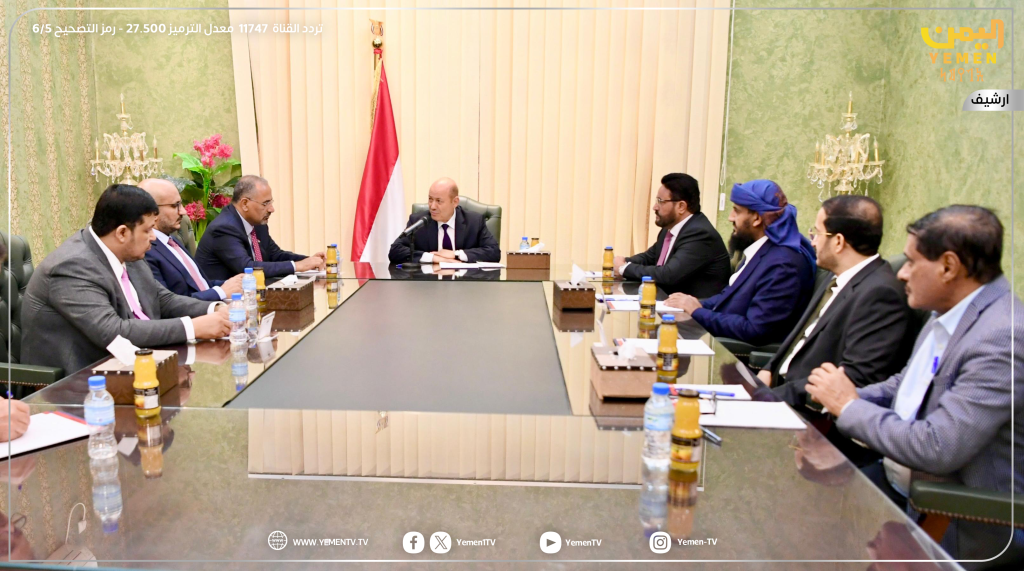
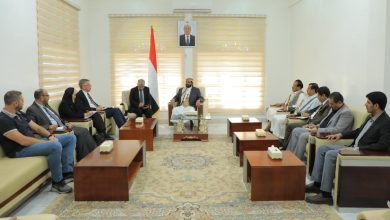 Al-Aradah discusses military and security developments with the UN envoy’s military advisor and their impact on the peace process.
Al-Aradah discusses military and security developments with the UN envoy’s military advisor and their impact on the peace process.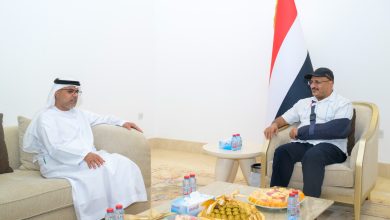 Tariq Saleh discusses the latest developments with the UAE ambassador.
Tariq Saleh discusses the latest developments with the UAE ambassador.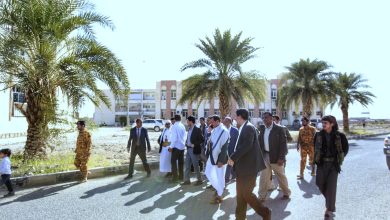 Mareb officials and the Technical Education Authority launch the furnishing of the Community College, funded by Kuwait.
Mareb officials and the Technical Education Authority launch the furnishing of the Community College, funded by Kuwait.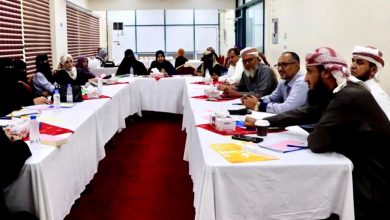 Workshop on violence against girls concludes in Aden, focusing on awareness and prevention strategies.
Workshop on violence against girls concludes in Aden, focusing on awareness and prevention strategies.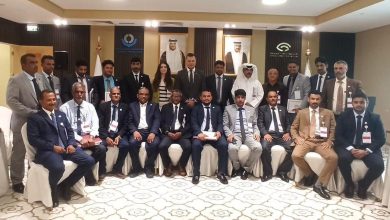 Training customs personnel in Qatar on monitoring strategic goods.
Training customs personnel in Qatar on monitoring strategic goods.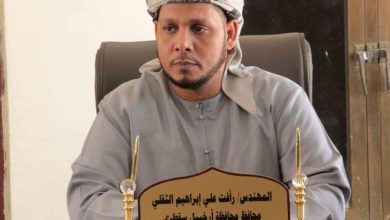 Al-Thuqali discusses efforts to document the Socotri language and directs preparations for the heavy vehicles site at the port.
Al-Thuqali discusses efforts to document the Socotri language and directs preparations for the heavy vehicles site at the port.